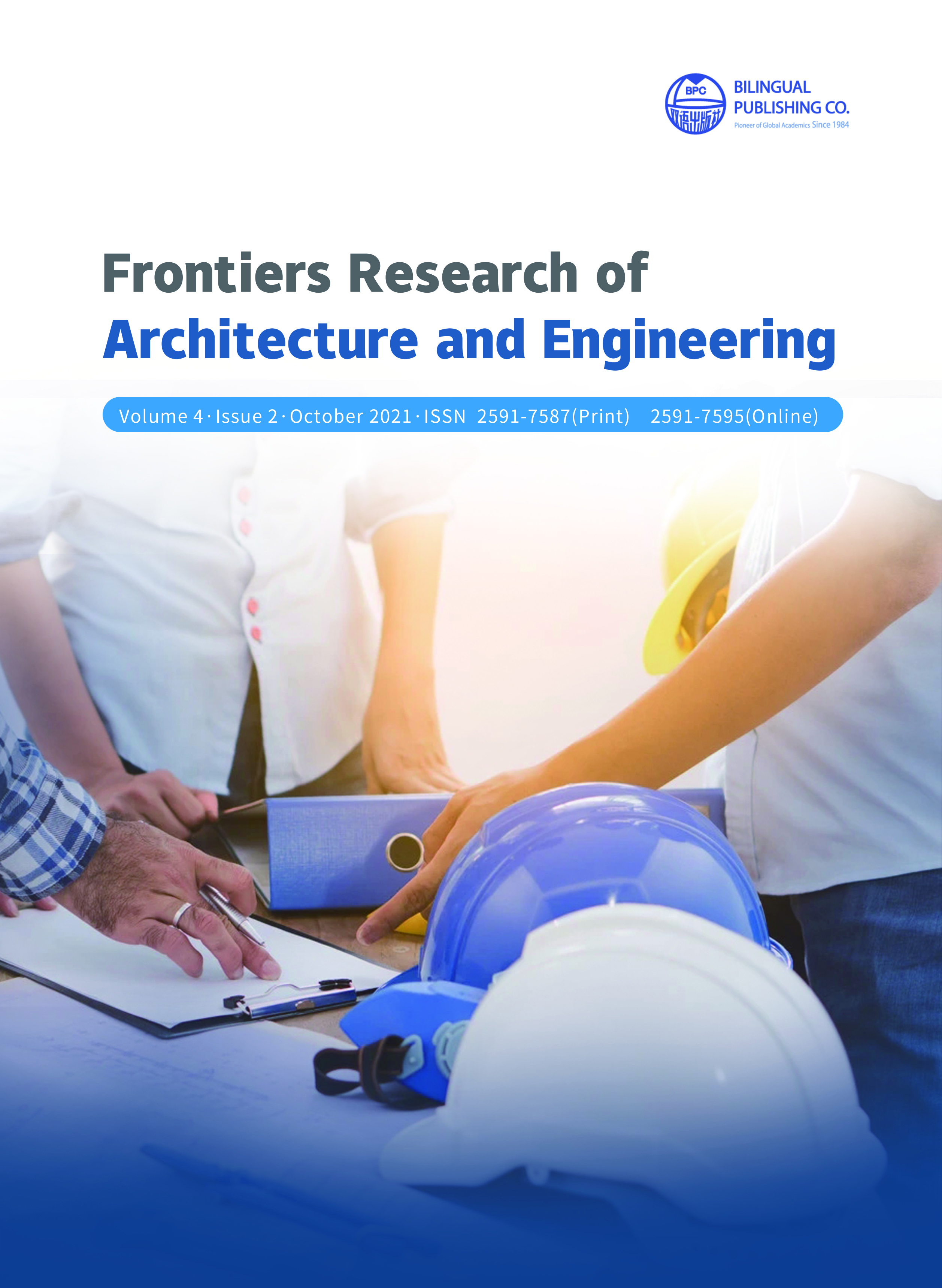Research on Green Transformation of Campus Sponge and Energy Saving Facilities on Sloping Land
DOI:
https://doi.org/10.30564/frae.v4i2.3346Abstract
Based on the renovation of sponge and energy-saving facilities in a middle school in Nanning, this paper systematically studies the overall elevation of the campus, the composition of the drainage system and the layout of space functions, and formulates a characteristic scheme for the renovation of sponge and energy-saving facilities according to the characteristics of the sloping campus. In order to control the total amount of rainwater runoff, the sponge transformation mainly adopts the transformation methods of partition catchment, upper storage and lower use, multi-stage detection and classification treatment. For the purpose of solar energy and wind energy utilization, solar photovoltaic panels and small-scale wind power generation system are adopted. The application effects of sponge and energy-saving facilities are estimated and evaluated.
Keywords:
Slope campus; Sponge and energy saving measures; Water purification terrace; Photovoltaic power generationReferences
[1] . Hu Yuting Liang Xiaohong Zhao Xueyan Chen Yingzhu Lang Jingyi.Exploration of recycling system under the perspective of “sponge city”. Shanxi Architecture. 2021(47):28-29.
[2] . Yu Sukuo. Application of Sponge City Concept in Rainwater Reuse Design of Urban Greenway. Construction Science And Technology. 2020(23):81-82.
[3] .Ding Rui, Zheng Han, Zhang Junhong, Hu Yong. Analysis of Urban Drainage Design Based on the Concept of Sponge City. Journal of Green Science and T echnology, 2020(10):255-257.
[4] .Lu Wei,Zhu Wenxiu,Zhao Yuxiu, Pollution Analysis and Control Methods of Stormwater Runoff in Sponge Campus. Environmental Science And Management. 2021(46):69-72.
[5] .Wang Li-rong, QI Jian-jun, LU Yan-ling. Research on the Design of Ecological Roof Rainwater Collection System Based on the Concept of Sponge City. Intelligent Building & Smart City, 2021(04):158-159+162.
[6] .Ma Xinru, Liu Mingyang, Bian Yuhao, Zhang Weini, Analysis on landscape transformation of low-lying woodland in Campus Based on rainwater garden theory, Xiandai Horticulture, 2021(44):137-139.
[7] .Chen Wang Zheng Mu-lian, Gao Qiian, MA Yue, JI Guor-qiang,DENG Chao-xian. Attenuation law of permeable pavement in sponge city. Journal of Chang'an University(Natural Science Edition). 2021(41): 12-21.
[8] .Cui Jing-en,Li Rui,Fan Lei,Peng Ming-qiang, Study on Integration of Solar Photovoltaic and Building Roof. Research & Application of Building Materials. 2021(02):48-53.
[9] .Fang Jian-jun, Integration Concept of Building Integrated Photovoltaic and Design Points of Photovoltaic System, Science Technology and Industry. 2021(21):251-254.
[10] .Bi Kai, Song Mingzhong, Lin Yujie, Ma Xinxia. Photovoltaic building integration technology and its application. China Science and Technology Information. 2021(11):41-42.
Downloads
Issue
Article Type
License
Copyright and Licensing
The authors shall retain the copyright of their work but allow the Publisher to publish, copy, distribute, and convey the work.
Frontiers Research of Architecture and Engineering publishes accepted manuscripts under Creative Commons Attribution-NonCommercial 4.0 International License (CC BY-NC 4.0). Authors who submit their papers for publication by Frontiers Research of Architecture and Engineering agree to have the CC BY-NC 4.0 license applied to their work, and that anyone is allowed to reuse the article or part of it free of charge for non-commercial use. As long as you follow the license terms and original source is properly cited, anyone may copy, redistribute the material in any medium or format, remix, transform, and build upon the material.
License Policy for Reuse of Third-Party Materials
If a manuscript submitted to the journal contains the materials which are held in copyright by a third-party, authors are responsible for obtaining permissions from the copyright holder to reuse or republish any previously published figures, illustrations, charts, tables, photographs, and text excerpts, etc. When submitting a manuscript, official written proof of permission must be provided and clearly stated in the cover letter.
The editorial office of the journal has the right to reject/retract articles that reuse third-party materials without permission.
Journal Policies on Data Sharing
We encourage authors to share articles published in our journal to other data platforms, but only if it is noted that it has been published in this journal.




 Qiliang Tan
Qiliang Tan

